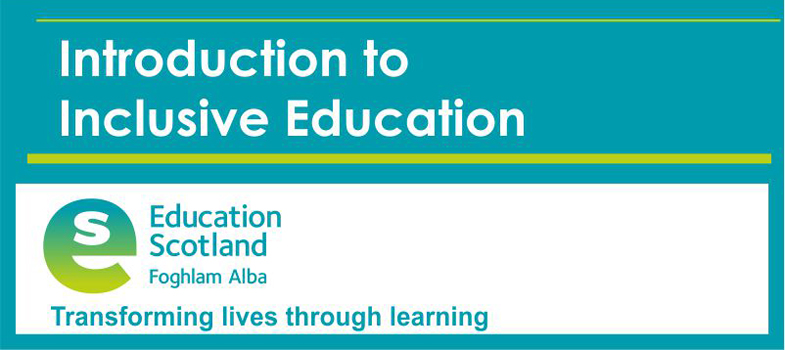3.3 Identifying additional support needs
Additional support is a broad and inclusive term which applies to children or young people who, for whatever reason, require additional support, long or short term, in order to help them make the most of their school education and to be included fully in their learning. ‘Additional Support Needs’ is the standard terminology used in Scotland when children and young people need more − or different − support to what is normally provided in schools or pre-schools to children of the same age.
Staged intervention is used as a means of identification, assessment, planning, recording and review to meet the learning needs of children and young people. All local authorities have a staged intervention and assessment process in place which enables practitioners to assess and meet learners’ needs. Staged intervention:
- Provides a solution-focused approach to meeting needs at the earliest opportunity and with the least intrusive level of intervention.
- Involves the child, parents/carers, school staff and, at some levels, other professionals, all working in partnership to get it right for every child.
Staged intervention is designed to be flexible and allows for movement between stages depending on progress. There are variations between local authorities regarding the number of stages within their process,
Factors giving rise to additional support needs.
There are a wide range of factors which may lead to some children and young people having a need for additional support. These fall broadly into the four overlapping themes described below:
- Learning environment,
- Family circumstances,
- Disability or health need and
- Social and emotional factors.
Within Curriculum for Excellence, all children and young people are entitled to support to enable them to achieve. Education authorities are required to identify the additional support needs of each child or young person for whose school education they are responsible. This can be achieved in a range of ways. Any person working with the child, or the young person himself/herself, could draw attention to the fact that difficulties with learning exist. For example, this person might be the parent, class teacher, a member of the school health team, educational psychologist, social worker or any person who has been working with a child or young person.
Activity 7
Think about your understanding of additional support needs and why children and young people may need some additional support. You may choose to take notes in your Reflective Log.
Click ‘reveal’ to see a list which highlights that children or young people may require additional support for a variety of reasons.
Discussion
These may include those who:
have motor or sensory impairments
have low birth weight
are being bullied
are children of parents in the Armed Forces
are particularly able or talented
have experienced a bereavement
are affected by imprisonment of a family member
are interrupted learners
have a learning disability
have barriers to learning as a result of a health need, such as fetal alcohol spectrum disorder
are looked after by a local authority or who have been adopted
have a learning difficulty, such as dyslexia
are living with parents who are abusing substances
are living with parents who have mental health problems
have English as an additional language
are not attending school regularly
have emotional or social difficulties
are on the child protection register
are refugees
are young carers
The above list is not exhaustive and there can also be overlap between the areas highlighted. This is often referred to as co-occurrence.
It should not be assumed that inclusion in the list inevitably implies that additional support will be necessary. However, the ASL Act automatically deems that all looked after children and young people have additional support needs unless the education authority determine that they do not require additional support in order to benefit from school education.
Additional support needs and disability
Learners may be entitled to support from ASL Act and also the Equality Act if they have a disability – which is one of the protected characteristics the act covers. Download the file to see the overlaps which can occur between the two acts concerning disability and additional support needs. Please note that the lists are not exhaustive.
You will need to download this file
Download ASN and Disability [Tip: hold Ctrl and click a link to open it in a new tab. (Hide tip)]
3.2 Targeted support
